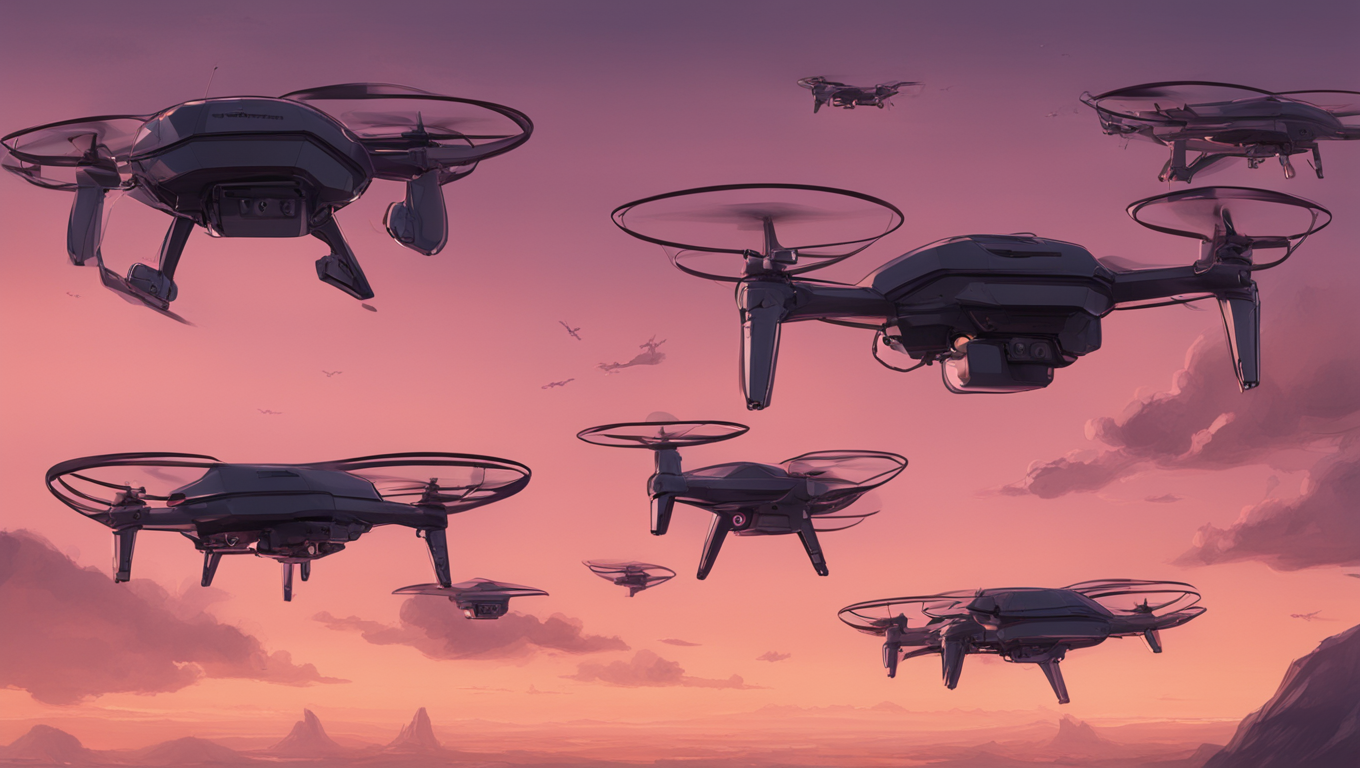In the world of military technology, artificial intelligence (AI) is rapidly shaping the future of warfare. This year, there have been several astonishing initiatives that highlight the advancements in autonomous targeting, drone swarms, and future combat capabilities. The Pentagon alone has approximately 800 AI-related unclassified projects in progress, all aimed at attaining a “force multiplier” integration to gain an upper hand over rivals. Let’s delve into some of the highlights and fascinating revelations that have emerged regarding AI on the battlefield.
One notable development took place in Israel, where the Israel Defense Forces (IDF) introduced the AI-powered Barak tank. This tank can create a 360-degree view of the battlefield for operating crews, allowing them to identify targets in front and behind the tank with the help of a specially designed helmet. The information can also be seamlessly shared with nearby tanks, enabling them to respond to the data and identify the target as well. According to Col. Beni Aharon, commanding officer of the 401st Armored Brigade, “The Barak tank is a historic event and a national mission for victory in the next campaign.”
Germany has made significant strides in AI military development with its virtual reality weapons-testing environment known as GhostPlay. This platform utilizes “third-wave” algorithms that enable more “human-like” decision-making from the simulated units. In addition, GhostPlay recreates detailed environments by aggregating satellite photos and local databases, allowing for faster and wider testing of weapons. The platform has particularly excelled in exploring swarm tactics optimization, investigating how to enhance the effectiveness of loitering munitions.
The AUKUS alliance, comprising Australia, the United Kingdom, and the U.S., conducted a military drill that featured the deployment of an AI-controlled swarm of drones. These drones successfully detected and tracked military targets in real-time. The Pentagon aims to develop an AI drone fleet to compete with China, which has been actively pursuing the development of autonomous drones. The collaboration between the three allies during the military drill helped reduce duplication efforts and ensured interoperability.
Israel has also been at the forefront of AI development and integration, using AI systems to rapidly identify battlefield targets and even project where targets might be in the future. The IDF has embraced digital transformation, recognizing the potential for a significant leap forward. AI has already proven its effectiveness in operations, helping to produce “200 new target assets” during a 10-day operation that successfully targeted Hamas commanders.
China poses a formidable challenge in AI development and integration. Beijing aims to lead the world in AI development by 2030 and has incorporated AI into its concept of “multi-domain precision warfare.” The country’s Five-Year Plan prioritizes advances in various technologies, including “brain science” and biotechnology, semiconductors, and deep space exploration. The Pentagon acknowledges China as the world leader in facial recognition and natural language processing technology. However, it remains cautious about certain foreign capabilities in producing hardware, such as advanced semiconductor chip factories.
James Anderson, former deputy undersecretary of defense, stated, “The size, scope, and sophistication of Chinese military modernization programs are breathtaking.” China’s relentless pursuit of a world-class military force, coupled with its ambitions in AI, poses a significant challenge to other nations, particularly the United States. The U.S. must remain vigilant as China aims to be the world leader in AI by the end of the decade.
In conclusion, the AI revolution in the military is well underway, offering advancements in autonomous targeting, drone swarms, and future combat capabilities. Nations like Israel, Germany, and China are making remarkable progress, utilizing AI technology to enhance their military capabilities. As AI technologies continue to evolve, they will undoubtedly play a crucial role in shaping the outcomes of major military confrontations in the coming years.





Use the share button below if you liked it.